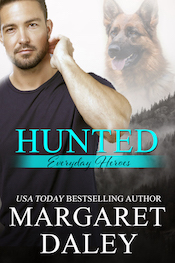
If you are interested in being in the drawing for Donn Taylor’s book, Rhapsody in Red, please leave a comment with your email address or email me at margaretdaley@gmail.com. The drawing ends Sunday evening.
Donn Taylor’s interview:
1. What made you start writing? It seems to be part of my genetic code. I began writing music at age 14. Two years later I entered college as a music major, studied piano with an instructor on leave from Cincinatti Conservatory and played some of my classical compositions in her recitals. But at age 18 I got interested in poetry—the Romantics, of course—and began writing poetry and some very bad short stories. Since then, writing is just something I have to do, though there have been long periods when job and family requirements pushed it far into the background.
2. How long have you been writing? When did you sell your first book? I’ve been writing one thing or another since I was 18.In the Army years it was tech writing. In grad school and my teaching years it was essays on literature and history of ideas. Afterwards, I returned to poetry and began trying to write novels. Five years later (2002), my first book (The Lazarus File) was published by Panther Creek Press, royalty-paying regional press in the Houston area.
3. How do you handle rejections? I’m pretty callous about these. What I write obviously doesn’t fit a lot of markets, and those it does fit may be full up on similar books. I’m probably the world’s worst salesman, but I have learned one thing about selling: You have to work through a lot of “No’s” to find one “Yes.” A rejection only means I haven’t found the “Yes” yet.
4. Why do you write? As I said before, it’s something I have to do. Any creative work is a model of reality as perceived by the writer. He says, in effect, “I think it works this way.” I’ve lived a long time and think I have some ideas that can benefit readers. However, there’s nothing wrong with straightforward entertainment with no ideological load.
5. What would you be doing with your free time if you weren’t writing? I don’t regard writing as free time. I look on it as my job, just as I looked on the Army, grad school, and college teaching as jobs. I have always spent free time from my jobs with my wife and/or children. Until the wheels came off, I also found time for competitive basketball and running 10Ks.
6. What are you working on right now? I’m well into a sequel to Rhapsody in Red, and I’m thinking about a thriller about the international black market in weapons.
7. Do you put yourself into your books/characters? Not really. I suppose there may be some overlap, but I try to let each character be himself. The character of Ramon in Lazarus is a blend of Shakespeare’s Falstaff and Walker Percy’s Moviegoer. He does everything flamboyantly in the way it would be done in a grade B movie—things none of us would ever dare try to do—and it always comes out right. He also constantly mixes his metaphors. No, I’m not in that character, except as all of us wish we had nerve enough to live the way he does.
8. Tell us about the book you have out right now. Rhapsody in Red, published by Moody, is a light-hearted mystery set on a college campus. The hero (if you can call him that) is a history professor with musical hallucinations, and the heroine is a headstrong professor of comparative religions. They stumble onto the body of a murdered colleague and get accused of committing the murder. Though they’re completely ill-matched and often in conflict with each other, they team up to find the real murderer. That task requires them to prevail against the police, the murderer, organized crime, and (worse yet) an unsympathetic college administration. Along the way, there’s also some light-hearted satire of college life.
9. Do you have any advice for other writers? Two important items. The first is patience: it always takes longer than you think it’s going to. Second, learn the craft: don’t be too proud or too stubborn to learn basic rules of grammar and punctuation.
10. How important is faith in your books? Faith is the little leaven that leavens the entire loaf. That is, it governs whatever values the sympathetic characters pursue and the unsympathetic characters violate. Sometimes it is overt in the dialog of characters. At other times it is implicit in the value systems practiced or violated. But it is always present, as the Lord’s value system is always present in real life.
11. What themes do you like to write about? I suppose it would be the necessity of living according to moral principle rather than expediency. The existence of principles implies a universal moral code, which in turn implies the existence of a Creator who created that moral order as well as the physical order of the universe. Psalm 19 is a good model: the psalmist considers the physical order of the universe, which leads him to consider the moral order, which in turn leads him to pray for God’s ordering power to be applied in his own life.
12. What is your favorite book you’ve written and why? It’s a toss-up between The Lazarus File and Rhapsody in Red. They’re very different books. Lazarus centers on an undercover CIA agent and a Colombian woman of good family, both determined to keep their promises regardless of other people’s treachery, even when that treachery threatens their lives. Rhapsody centers on two people who insist on living by principle when everyone around them lives by expediency. But I confess I enjoyed writing the humor that keeps popping up in unespected places in both books.
13. What is your writing schedule like? Ideally, I like to put in about four hours of straight writing in the morning, turning to administrative and housekeeping matters in the afternoons. Also reading. However, it seldom works out that way for long at a time. I do paid poetry critiques and judge poetry contests, I teach at various writers’ conferences, and I speak to writers’ groups. These things cut into writing time. In addition, necessary family appointments and various crises push writing aside temporarily. I have to catch up when I can, and every break interrupts continuity. In planning, I estimate how long a project will take. Then I double that length of time to produce a realistic goal. Somehow, it usually gets done in the long run.



